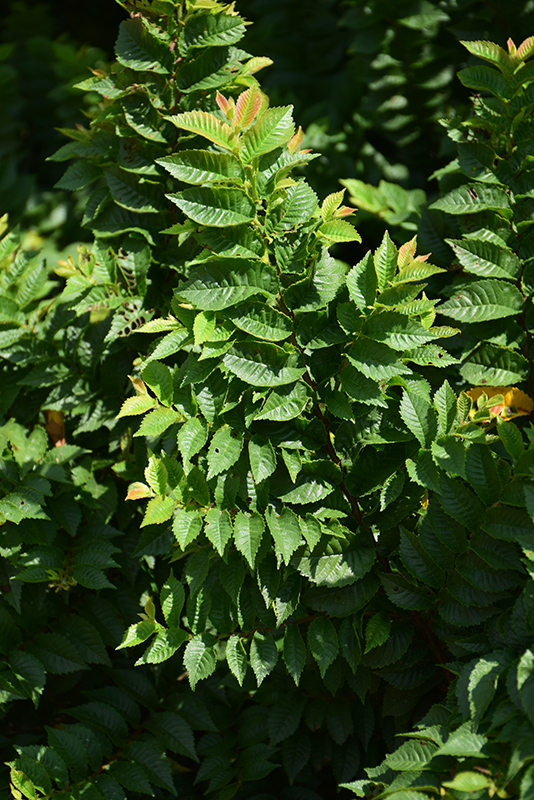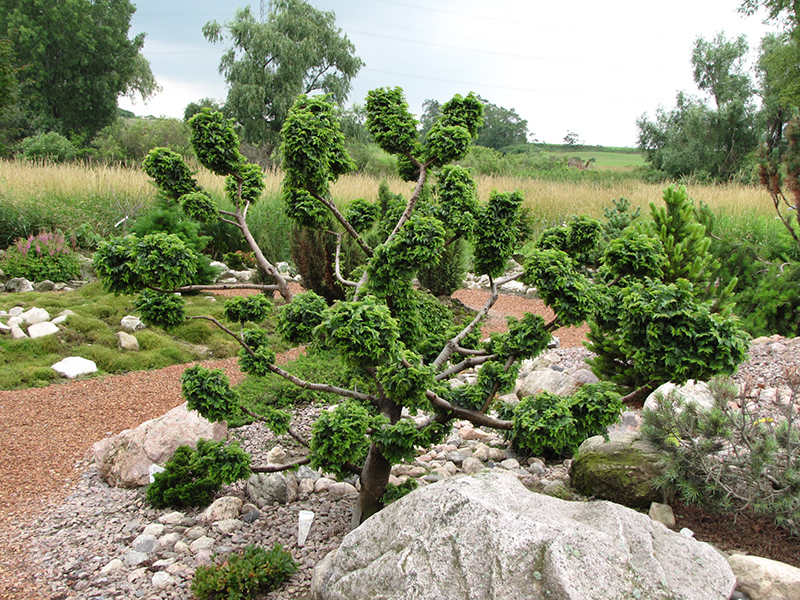Plant Finder
Jacqueline Hillier Elm
Ulmus 'Jacqueline Hillier'
Height: 12 feet
Spread: 12 feet
Sunlight:
![]()
Hardiness Zone: 5a
Other Names: Holland Elm
Description:
A dwarf variety of hybrid elm that is very slow growing and densely branched; may be trained as a single stem tree; highly resistant to Dutch elm disease; ideal as an accent for smaller areas; impressive orange fall color; very adaptable
Ornamental Features
Jacqueline Hillier Elm has dark green deciduous foliage which emerges chartreuse in spring on a plant with a round habit of growth. The tiny serrated pointy leaves turn orange in fall.
Landscape Attributes
Jacqueline Hillier Elm is a dense multi-stemmed deciduous shrub with a more or less rounded form. Its relatively fine texture sets it apart from other landscape plants with less refined foliage.
This is a relatively low maintenance shrub, and is best pruned in late winter once the threat of extreme cold has passed. It has no significant negative characteristics.
Jacqueline Hillier Elm is recommended for the following landscape applications;
- Accent
- Hedges/Screening
Planting & Growing
Jacqueline Hillier Elm will grow to be about 12 feet tall at maturity, with a spread of 12 feet. It has a low canopy with a typical clearance of 2 feet from the ground, and is suitable for planting under power lines. It grows at a slow rate, and under ideal conditions can be expected to live for 60 years or more.
This shrub should only be grown in full sunlight. It is very adaptable to both dry and moist locations, and should do just fine under average home landscape conditions. It is not particular as to soil type or pH. It is somewhat tolerant of urban pollution. This particular variety is an interspecific hybrid. It can be propagated by cuttings; however, as a cultivated variety, be aware that it may be subject to certain restrictions or prohibitions on propagation.






